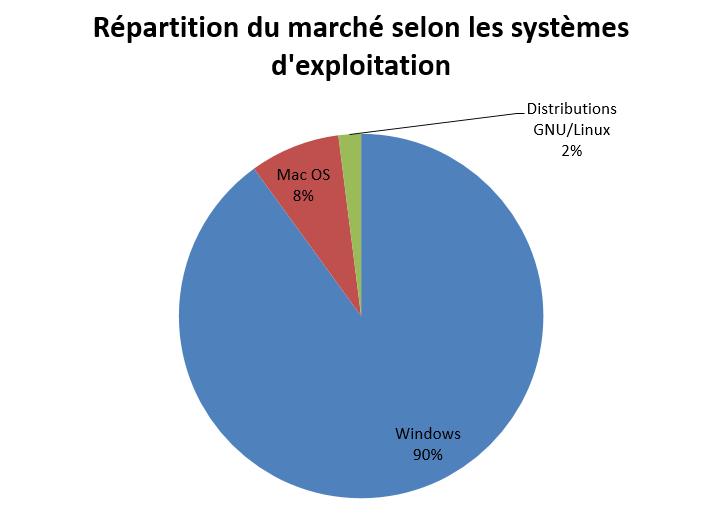For an extended vision of CSR in emerging countries
In the pandemic context, more than before, a renewed conception of CSR in emerging countries can lead to exceeding the simple logic of "repair" of the damage caused by the activity of companies and extend the reflection to other types of'Companies for a more attentive vision in relation to social or environmental benefit.
The company is by nature the place of production of wealth in society through investment (national or international IDE capital) for the creation of employment and stable income to employees.
However, the company moves in a legislative, regulatory and institutional environment likely to grant any type of rights and advantages to operating companies.The institutions that can be, on the other hand, not regarding the interests of local populations.
Leonine mining contracts in the southern countries are an illustration, because it causes little or no benefit for citizens and often lead to an overexploitation of resources and environmental degradation.
Another, no less worrying example is that of electrical and electronic equipment waste (DEEE).These growing volumes of waste, whose toxicity is no longer to be demonstrated, testify to the modes of consumption and production of technology in the North essentially, and find themselves dumped in Africa for example, where a certain recycling is mainly done in the'informal.There is also a slowness in this regard to adopt and implement regulations relating to the management of this waste: only 13 African countries out of the 43 analyzed by the Global E-Waste Monitor 2020 study hold a national policy of regulation and management ofDeee waste.
In short, the impact of these unbalanced and unbalanced situations can be destructive compared to the territories and the populations concerned.
CSR approaches and development concerns
The negative consequences and impact of national and international firms activities in all sectors, on the environment and health of residents, have induced recommendations from various international institutions and the grievances of civil societies, bringing out the concept of CSR sinceThe 1990s to recall a certain societal duty of the company and call to remedy these dysfunctions.
The observation of the implementation of these recommendations shows a diversity in the approach of firms in relation to said CSR.Indeed, some companies develop the respectful concern vis-à-vis their ecosystem.They primarily employ local labor under relatively decent conditions, can also create social projects likely to contribute to a valid lifestyle (training, functional and digital literacy, hospitals, development of model villages, sports, cultural, cultural, culturaland artistic, etc.) and induce a positive environmental impact (eg reforestation, promotion of sustainable agriculture, wastewater treatment).But, more often than not, companies operate in a more or less total carelessness as to respect for the nature and interests of citizens.
Accept the principle of correction of the damage caused by their activities, straighten their brand image, comply with regulatory texts, respond to criticisms of civil society and the demands of union organizations, these are, in reality, the reasons and foundations of the proceduresMostly firms of firms.

Of course, these CSR attitudes are directly correlated with the balance of power that prevail in the countries in question: the positioning of the State, the Parliament and the legislators, the unions, the local and international NGOs, the social networks and the debates inThe country on the rights of territories, populations in particular rural, employees, workers, etc.
Towards a broader vision of the responsible company
Today, more than before, the crisis we are going through has shown the urgency of a transition to a fairer development consolidating social stability by solidarity and inclusion policies.This stability remaining, moreover, a fundamental factor for the very fruiting of investment in developing countries.
The crisis, which is also fundamentally an ecological crisis, has made it possible to rest the question of climate debt towards the countries of the South: drying up lakes and wadis in North Africa, torrential rain in the Central African Republic, massive deforestation, pollution of water, from air and loss of biodiversity in Southeast Asia ... Catastrophic assessments confirm the extreme vulnerability of these regions to climate change.Let us recall in this sense that this ecological crisis will get worse, as evidenced by on the day of overcoming the earth which dates back this year last July 29, day from which, for the rest of the year, humanity lives"On credit" on the resources of the planet.
In this context, CSR in emerging countries should be redesigned far beyond its "restorative" function of the ills and outrageous caused by the deployment of businesses and their activities.It is a question of promoting a new CSR design, or even a new type of business which will be erected as a engine of resilient, sustainable and less unequal resilient and less unequal development models in these countries.
It will no longer be a question only of carrying out a "social repair", but rather of contributing to a certain "social construction" which integrates the principles of sustainable and inclusive development in development (industrial, agricultural, technological, digital ...) ofemerging countries.
In the countries of the North, we see a dynamic around conceptions of citizen or committed businesses that take into account their societal impact, even place it at the very heart of their vocation and business model.
In France, for example, the introduction of the quality of company to Mission by the Pact law in 2019 allows a company to "declare its raison d'être through several social and environmental objectives".
Whether social enterprises in France, the Community Interest Companies (ICC) in the United Kingdom (15,700 all sectors combined according to the annual report Regulator of CICS 2018-19) or even the corporations in the United States, theDefinitions and legal frameworks vary according to the contexts, but the common denominator is the conciliation between profit "Doing Well" and positive social and environmental impact "Doing Good".
In other words, it is a question of making reasoned or even regenerative uses of nature resources and not to face its trends, but also to go towards a less unequal distribution of productivity fruits.
We therefore believe that these social business models, which are starting to attract different profiles of public and private investors, and which put the company and local entrepreneurship in the service of major societal issues, should also multiply in emerging countries.The land being fertile to do this: in Africa for example, youth aged under 25 is 70% of the population, this potential for young people being eminently sensitive to these issues.
The company, national and even international, could then contribute, depending on the context and in coordination with the institutional, the response to the challenges that these countries face (massive rural exodus, excessive urbanization, crying lack of infrastructure, informality, climatic hazards, endemic social precariousness, etc.), in compliance with the challenges of economic sovereignty.
Institutions, pandemic context and CSR
The state in these emerging countries establishes policies of encouragement of national investment and FDI for the creation of wealth and the promotion of employment.It grants aid and often brings together the optimal conditions in favor of business productive activities (field facilities, development of industrial zones, equipment and infrastructure, various services necessary for production, security, etc.).
But the state, in its social functions, even more in a pandemic context, is theoretically protecting populations whose purchasing power and living conditions are more precarious.It should ensure the various social covers and safeguard the necessary conditions so that its populations are not injured by the impact of the activities of the firms whatever they are, and against any abuse or any social or environmental damage.Due to these same social functions, the State would ensure the balance between investment, economic performance and natural and social environment.
This is how public institutions must ensure compliance with labor laws, environmental regulations (pollution, waste management, etc.) and the preservation of resources (water, minerals, careers…), Respect for specifications relating to productive activities, as well as any projects or markets allocated to companies.
And beyond the support of these fundamentally "CSR" measures, the need arises to establish legal and institutional frameworks to promote the emergence of these types of responsible companies, in particular the legal framework as well for theESS only for social enterprise.
To cite the example of Senegal, according to the economic and legal study, social enterprises in Senegal carried out by Legs-Africa, these companies constitute a significant part of the fabric of SMEs (on average 12 %), and GDP (almost 5%).However, the absence of a legal framework constitutes an obstacle to their development, which leads to tax, financing and formalization difficulties.
Thus, in a social climate where the state would maintain the good balances between society and the company, the latter would be led to operate in respect of social and environmental ethics.
And beyond classic CSR approaches, it would be a question of going beyond the simple logic of social compensation, and extending reflection and practice to social enterprise models.The latter, in particular through multi -actor partnerships (institutional, civil society, unions, municipalities, universities, classic companies, etc.) would induce a dynamic of development with regard to the social and environmental problems of emerging countries. Autors: Soha Benchekroun -Strategy consultant engineer, sustainable development player - CSR
Abdelaâli Benchekroun - economist and renewal co -author for Morocco







